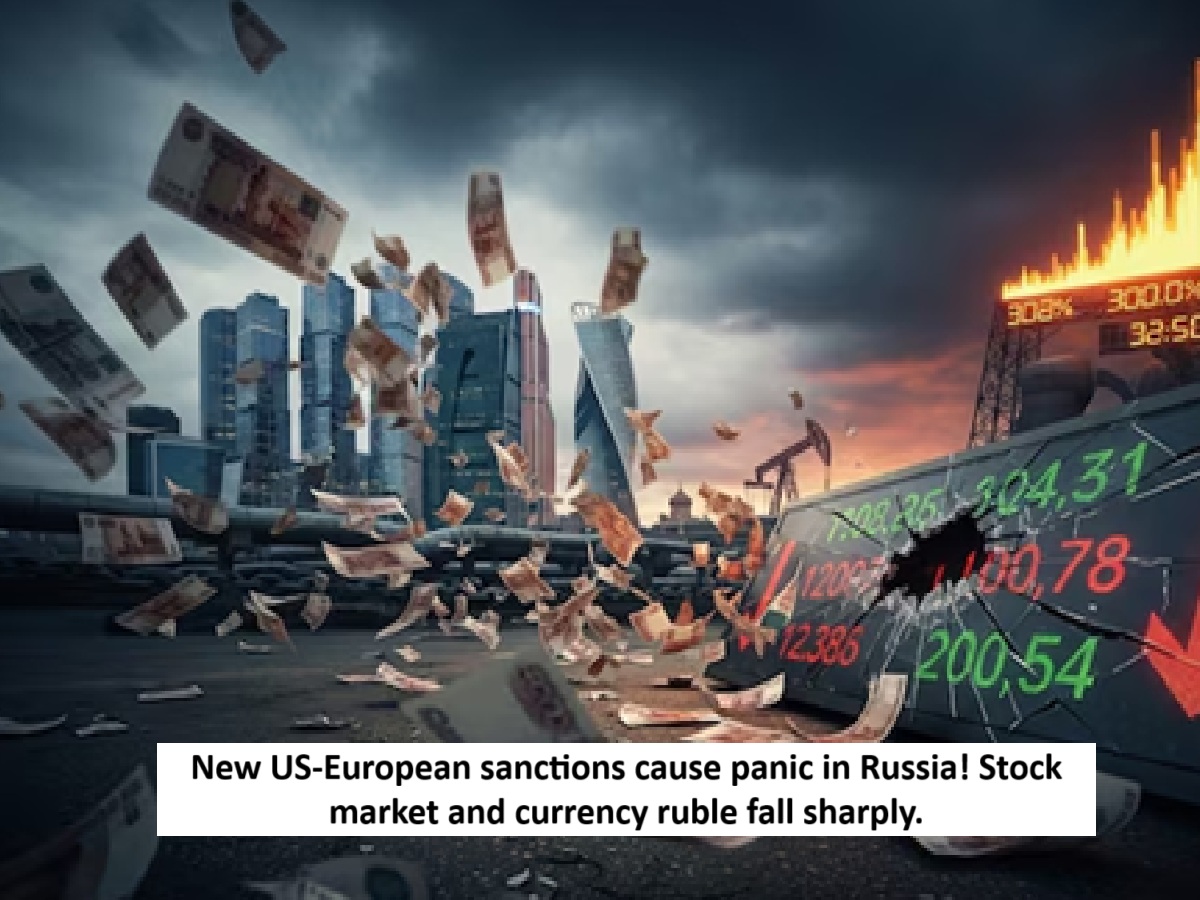
News Topical, Digital Desk : Fresh energy sanctions from the US and the European Union have dealt a blow to Russia's economy. Stocks fell 3.5% at the Moscow Exchange (MOEX) opening on Thursday, while the Russian currency, the ruble, weakened against the dollar. This move follows the imposition of new sanctions on Russia's largest oil companies, Rosneft and Lukoil. Both the US and the European Union have targeted Russia's energy sector, causing turmoil in the global oil market.
The impact of the new energy sanctions imposed by the US and the European Union (EU) on Russia was evident early Thursday morning. The Moscow Exchange (MOEX) fell more than 3.5% to close at 2,560. The sharp decline was driven by two major state-owned oil companies, Lukoil and Rosneft, whose shares fell more than 3%. While there was a slight recovery later, investors remained fearful.
The MOEX Oil and Gas Index also fell 3.6%, indicating that the market has taken these sanctions seriously. The Russian currency, the ruble, also failed to escape. It slipped 0.5% against the dollar to 81.09 rubles per dollar. The US targeted the largest oil companies – this time the US government directly targeted Rosneft, Lukoil, and their subsidiaries. Washington accused Russia of "not showing any serious commitment to peace." These sanctions are aimed at weakening energy exports, the backbone of Russia's economy. US Treasury Secretary Scott Bessant said, "This is one of the largest energy sanctions ever imposed against Russia." Global oil markets surged immediately following the announcement. WTI crude jumped 4% to $60.86 per barrel, while Brent crude rose 3.7% to $64.95 per barrel. EU bans LNG imports for the first time - Meanwhile, the European Union (EU) has also passed its 19th sanctions package against Russia. This time, for the first time, LNG (liquefied natural gas) imports have been targeted. Action has also been taken against Russian banks, crypto platforms, and the "shadow fleet," i.e., ships that secretly transport oil. EU chief Ursula von der Leyen said that Europe is "striking at the heart of Russia's war economy." Meanwhile, EU foreign policy chief Kaya Klaas said that the package also increases surveillance on Indian and Chinese companies accused of aiding Russia. EU countries have extended the ban until January 2027. A plan has been made to completely halt Russian LNG purchases. More than 100 oil tankers and several financial institutions have also been blacklisted. The EU has imposed sanctions on more than 2,500 individuals and companies, including those involved in Russia's banking, oil, and luxury sectors, starting in 2022. The joint energy sanctions imposed by the US and Europe have increased economic pressure on Russia. While this will hurt Russia's income, it could also lead to continued fluctuations in global oil and gas prices.
Read More: US Market: US markets saw a sharp decline, AI tensions weighed on investors.
--Advertisement--

 Share
Share



